Rome (Italy). On 15 November 2021, we celebrate the liturgical memorial of Blessed Maddalena Caterina Morano, Daughter of Mary Help of Christians of Piedmontese origins who, called to carry out her service in Sicily first as Animator, then as Provincial, knew how to enculturate and spread the spirit breathed in the Community of Mornese, giving a great impulse to educational and pastoral works.
How did Mother Morano contribute to making the Communities ‘vocational environments’?
Sr. Piera Cavaglià, Secretary General of the FMA Institute from 2002 to 2021, taking up the themes of the XXIV General Chapter which ended on 24 October 2021, highlights how Mother Morano, albeit with different terms and in a historical context far from the current one, favored a vocational imprint in the communities:
The question makes one of the strong appeals of the recently concluded GC XXIV resound in us:
“Let us revive and witness together the beauty of the Salesian vocation by placing ourselves in a state of ongoing formation for a renewed vocational impulse. We are invited to return to the covenant of love and to rediscover vocation as an experience of encounter with God. He loves us, has fixed His gaze on us, calls us to share the passion for the Kingdom in the human and ecclesial community.” (Acts of the XXIV General Chapter: With Mary being a ‘presence’ that generates life – text being printed).
For years the Institute has undertaken the deepening of this reality: the Formation Plan and the Guidelines for the educational mission of the FMA clearly reaffirm that vocational animation finds its vital space in Youth Ministry and YM becomes effective when it opens to the vocational dimension. But this can only take place within communities that are a “space for vocational growth for each member” and a “vocational proposal” for young men and women (Cf. Rooted in the Covenant. FMA Plan of Formation p. 50 and cf. p. 81-96).
Vocational animation therefore does not arise at the end of the journey, but is a dimension, an indispensable perspective that qualifies every educational project, every community, every phase of human growth. It is not reduced to some strategy, but is identified with a climate. The climate is experienced within a community, a vocational laboratory par excellence.
The points of reference of Maddalena Morano and the first communities
Sr. Maddalena must have felt immense joy when she said: “I saw Don Bosco, I spoke to him! I was in Mornese, I breathed that atmosphere, I met Mother Mazzarello, I held her hand tightly in her last hours of life.”
In fact, her life revolved around the continuous reference to an experience that marked her on profound levels. In Fr. Lemoyne’s report on Mother Mazzarello’s illness and death, regarding the last night, we read, the sisters were near her bed. “It seemed that she wanted to make sure of their presence and was holding Sr. Morano’s hand tightly.” Sr. Maddalena Morano was in Nizza in charge of the boarders. She would leave for Sicily on 5 September 1881 (cf. Footsteps of life, traces of the future D 122, p. 341).
She had breathed the ‘spirit of Mornese’ and this fact, more than a privilege, Magdalene considered a mission. In fact, she had made the resolution to be a saint according to the style of Don Bosco and Mary Mazzarello, at any cost, trying to guide sisters and girls, lay people, and perhaps even the parish priests with whom she collaborated in the catechetical mission towards this goal.
If one analyzes the film of her life, sequence by sequence, one discovers what her conception of Salesian holiness is no longer belonging to oneself but fulfilling oneself in love, as an educator and formator.
The children, the boys, the girls, had in fact populated her life since she was 14 years old. It is impossible to think of Magdalene except as a guide, as a teacher of life, as a wise, decisive, and maternal accompanier.
She shows us with facts the practicability of holiness forged as a guide for others on the path of discovering God’s plan. Her existence is a transparent sign of how much God loves us; for this reason her life is an appeal for others, it is called vocational.
Sr. Petronilla Mazzarello, who was her novice formator, had long and complacently observed that novice who entered the Institute at 31 years old, while she taught or while playing among the girls and said of her, “She had a truly Salesian spirit”.
In fact, her points of reference remain, in addition to the Gospel and the Constitutions, the spirit of Mornese and Nizza, the climate of the charismatic origins, the testimony of sisters in whom she saw the incarnation of Salesian spirituality. (Complete text)
In the 3rd year in preparation for the 150th anniversary of the foundation of the FMA Institute, in which the Educating Communities are called to “Plan the future boldly”, the experience of Mother Maddalena Morano is an example and encouragement for the Educating Communities “to joyfully celebrate the fidelity of God and the presence of Mary Help of Christians which gave rise to the FMA Institute and continue to accompany its journey.”
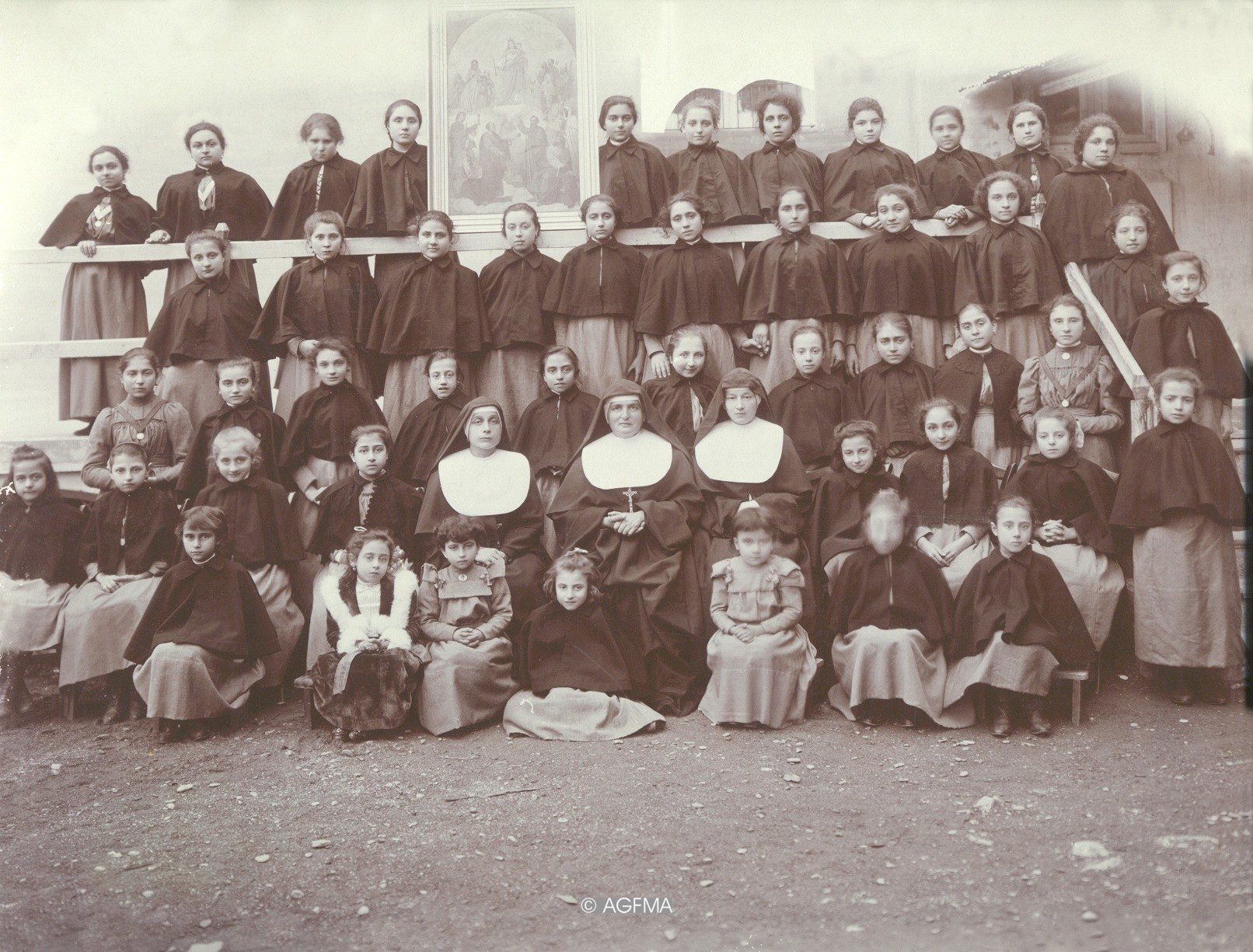




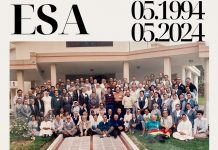
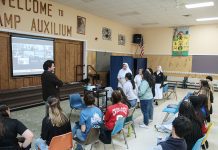
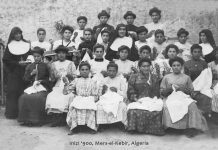
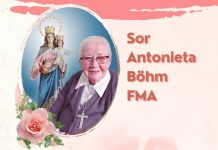


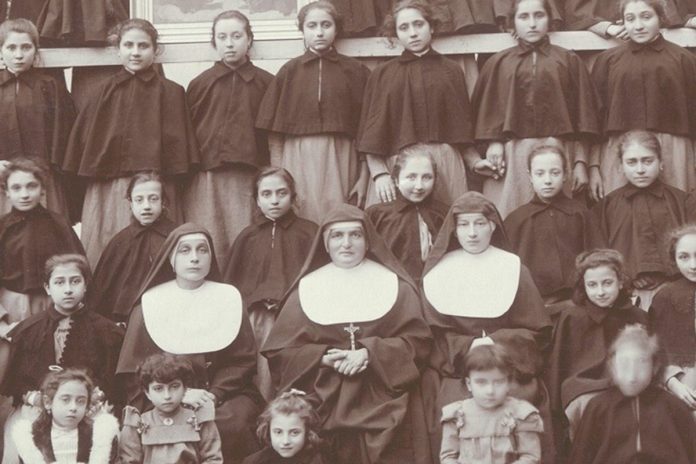










GRAZIE PER AVER ESPRESSO LA SANTITA’ DI MADRE MORANO INNESCATA E FIORITA A MORNESE CON MADRE MAZZARELLO, LE CONSORELLE – E SOTTINTESO – DON BOSCO.
I TEMPI SONO DIVERSI I VALORI NO, A NOI RISVEGLIARLI, PROGETTARLI, ATTUARLI. GRAZIE SR. PIERA, CONTINUA A DONARCI LA RICCHEZZA DELLE PRIME ORIGINI E POSSIBILMENTE L’AUDACIA OGGI..
Thank you Sr. Piera. This article is a treasure.
Muchas gracias querida Sr Piera! Compartimos con la comunidad educativa!
Grazie Sr Piera per questo articolo su Madre Morano!
Obrigada pela riqueza deste texto sobre M.Morano, Ir. Piera! Foi uma grande mullher, uma santa FMA, testemunha de uma vida entregue à educação das jovens, no espírito do carisma salesiano das origens, “gerando vida” no tempo que lhe coube viver!
De tout coeur merci pour ce partage de nos origine que la vierge nous accompahne